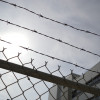Catching COVID twice
Interview with
In many countries rates of the infection are surging again. Even in Germany, a nation with a strong track record of controlling the coronavirus, they’re currently seeing about 10,000 cases per day. Here in the UK the government has unveiled their tier system for managing outbreaks at local level, but cases are still rising, and some voices are calling for another national lockdown. The long term strategy, as far as we can tell, is to keep the disease activity as low possible until we have a vaccine, assuming that happens, to protect the most vulnerable. But a piece of news this week caused some to question that approach and ask, “will a vaccine work if you can catch COVID twice?”. What prompted that reaction was the publication in the Lancet medical journal this week of a proven case of coronavirus reinfection. Mark Pandori, Director of the Nevada State Public Health Lab, told Chris Smith about the patient they’ve been following...
Mark - What we have is a 25 year old man, positive for SARS-CoV-2 on two separate occasions, separated by about 48 days. And in the time between his two positive tests, he had two negative tests and also recovered. So it looks like he was infected twice.
克里斯病毒——这是不可能的could have lurked in some part of his body and you failed to detect it in each of those two tests? And then it just made a resurgence or a comeback?
Mark - Yeah, it was a consideration we made as well because it's a very reasonable thought to have, that that might be what happened. And what we did was to look at the genomes of those viruses. And we found that the DNA of the two cases of viruses was very different. The difference was so great that it couldn't be explained by a slow creep of the virus changing over 48 days.
Chris - And in terms of his symptoms, how did he present clinically on the two occasions?
Mark - On the first occasion, he felt like he had the flu, but not lousy enough to be admitted to any sort of medical care. And then about 40 days later started to feel very lousy again, after having felt fully recovered. And felt so sick, he went to a doctor who immediately said, "boy, you need oxygen". And he was admitted to the hospital.
Chris - Did he recover?
Mark - Yes, he did recover. And is home.
Chris - What are the implications then, of what you found? Of someone who has caught the virus, recovered, presumably become immune, but then pretty promptly succumbed again.
Mark - This is not a surprise to people that study viruses. We have known that re-infections are possible in viral infections. And so what we don't know is whether this is a rare event or a common event, or somewhere in between. There are other coronaviruses that circulate around and we've had challenges with immunity to those as well. So the implications are that our own immunity might be weaker against this class of agent, but implications for vaccines might be different. Viruses have evolved to avoid natural immune systems. It's the one thing that can take them down. So natural immunity sometimes isn't as good as vaccine mediated immunity. So if we try to expand this to say, "well, gee, if you can get reinfected from natural infection, is a vaccine going to work?" And the answer is, I think there's still a lot of optimism about a vaccine because when vaccines are constructed, they're a focused, almost engineered immunity that we build. And we build it against the Achilles heels of these viruses. So the implications for our own immunity may not be great. But with regard to vaccine immunity, we could very well still be in fine shape.
Chris - Interesting though that your patient, when he presented for the second time, was worse.
Mark - There's two possibilities or three that I could share. We know that in viral infections, that that dose that makes you sick, the size of that dose can impact how sick you get. It's possible he got a very, very large dose the second time. Number two, there were genetic differences between the virus that he got in case A versus case B. And those fundamental differences might be representing different capabilities of those two viruses. The third thing is some viruses - you know, there's a virus out there that causes dengue where a first infection can facilitate a secondary infection. Now, we don't have evidence that coronaviruses utilise that strategy, but some viruses do where the actual unintended consequence of an immune response can facilitate a second infection. And we'll see if coronavirus can do that.









Comments
Catching covid twice
一个版本y interesting article , particularly the thought that the first infection could cause a secondary infection .Ive thought this for several months as this appeared to happen to my son although he has never had a Covid 19 test . In February he felt really ill and had a very high temperature , was bedridden for a couple of days before recovering .maybe 4–6 weeks later he started complaining of lack of taste and smell , he had conjunctivitis and then started with a very sore throat but no temperature or cough . I’m convinced he has had Coronavirus but at the time of both incidents test were not available and the key symptoms were spread between the 2 incidents several weeks apart.
Add a comment